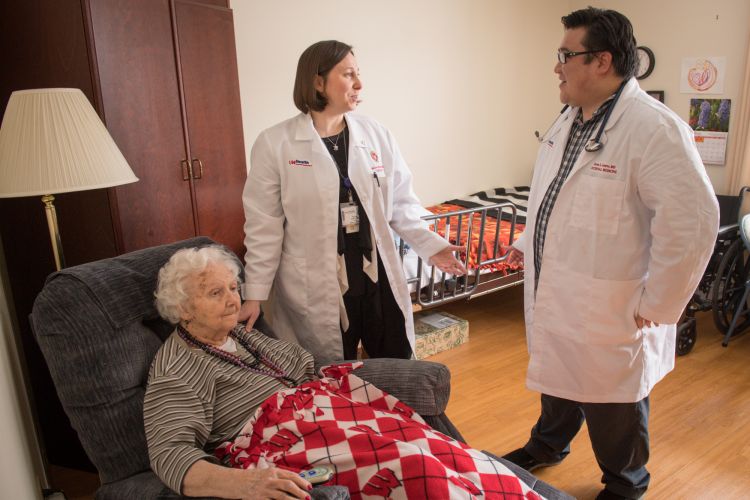New program provides “feedback on feedback” coaching for mentors and educators

Every day, faculty members provide narrative feedback to medical students, residents, and fellows who are engaging in clinical training experiences. These comments are important contributors to learners’ training—and yet, few mentors have ever received specific training themselves about how to craft effective written feedback.
Until now, thanks to a new “feedback on feedback” effort launched by the Department of Medicine Education Committee.
In this program, faculty members who engage in training medical students, residents, and/or fellows will receive periodic written letters from the committee to provide coaching on strengths and areas for improvement. The advice will be tailored to each faculty member based on narrative comments that they have entered into databases for trainees. The inspiration for the program, which will begin in mid-May, 2017, was requests from faculty members for new ways to help support, develop, and expand their skills as educators, said committee member Jeremy Smith, MD, assistant professor (CHS), General Internal Medicine.
“We want to help our faculty deliver feedback that is as useful as possible to the learners: feedback that is well-done and specific. We’ll highlight good examples, and offer tactics for improving narrative comments in the future,” he said.
“Our aim over the course of the year is to send letters to the approximately 150 faculty who are involved in significant amounts of teaching learners at all levels—medical student preceptors, fellowship program directors, attendings, for example,” said Laura Zakowski, MD, associate professor (CHS), General Internal Medicine and associate vice chair for undergraduate medical education.
Coaching on techniques for effective narrative comments for learners can be invaluable, said Dr. Smith, who personally participated by receiving a letter about his own written feedback. “The information I got was very specific, which made it more helpful. [The committee] pointed out things that I had not previously noticed about the quality of my written feedback. They offered suggestions that were very concrete. It’s probably the only time I’ve ever gotten coaching of this type,” he said.
No opt-in to the program is required, said Dr. Zakowski. The committee intends to provide coaching letters to all faculty as a continual effort, prioritizing those who expressed strongest interest in a recent survey.